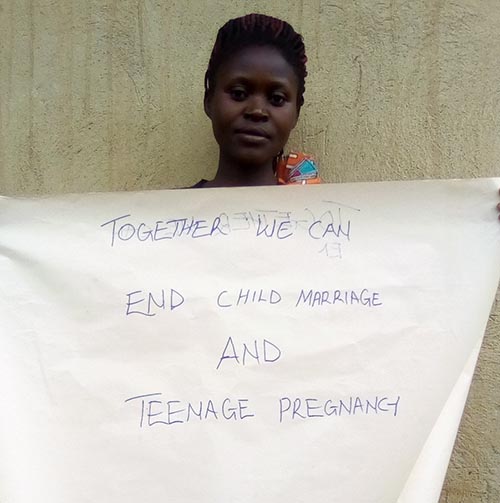Paheja Siririka
The United Nations Population Fund has released a study stating that nearly a third of women aged 19 and younger in developing countries begin childbearing, and nearly half of first births to adolescents are to children aged 17 and younger.
The study released this week further shows that women who began childbearing in adolescence had almost five births by the time they reached 40, even though total fertility across the globe has fallen.
“When nearly a third of all women in developing countries are becoming mothers during adolescence, it is clear the world is failing adolescent girls. The repeat pregnancies we see among adolescent mothers are a glaring signpost that they desperately need sexual and reproductive health information and services,” said UNFPA executive director Natalia Kanem.
She added: “After having their first child, additional childbearing in adolescence is common for child mothers. Among girls with a first birth at age 14 or younger, nearly three-quarters also have a second birth in adolescence, and 40% of those with two births progress to a third birth before exiting adolescence.”
Kanem stated that governments need to invest in adolescent girls and help expand their opportunities, resources and skillsets. This will help them avoid early and unintended pregnancies, and when girls can meaningfully chart their life course, motherhood in childhood will grow increasingly rare.
Complications from giving birth are a leading cause of death and injury for adolescent girls. But being an adolescent mother can also lead to other grave violations of their human rights and serious social consequences, including child marriage, intimate-partner violence and mental health issues. The youngest child mothers face the highest risks.
On the International Day of the African Child last month, Kavango East governor Bonifatius Wakudumo said the region recorded the highest number of teenage pregnancies in 2020 with 552 and increased to 860 in 2021, with the youngest being 11 years old. He called it an unfortunate situation that needs to be challenged by everyone.
“The region is challenged by social issues affecting children, such as teenage pregnancies, early marriages, rape and child neglect, children with absent fathers and mothers, and in most cases, children are dumped in the care of the grandparents,” he stated.
“Let us start acting and condemning these social evils in our societies because it contributes to child deaths, high school dropouts, unemployment and eventually poverty”, Wakudumo appealed then.
The education ministry in 2021 also released staggering statistics surrounding teenage pregnancies at a time when the country was battling the Covid-19 pandemic, revealing that 3 627 teenage girls fell pregnant across the country, doubling the numbers from the 2020 academic year.


